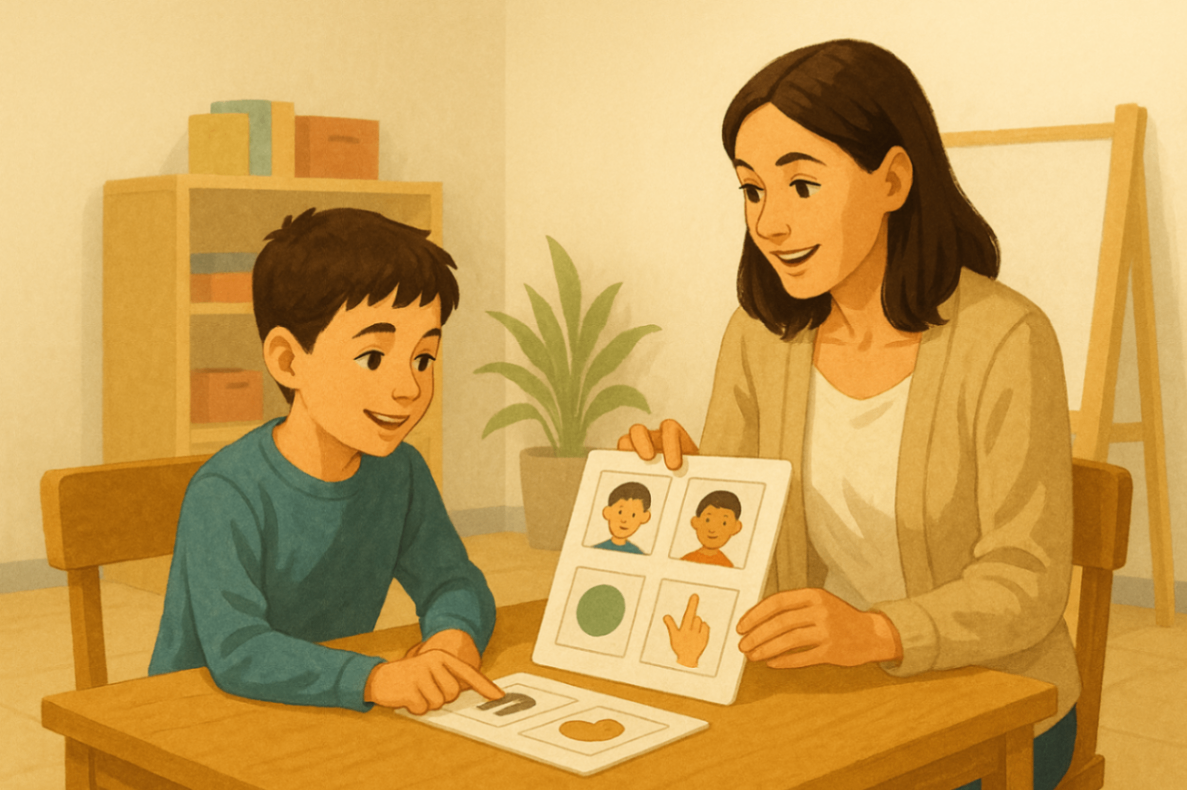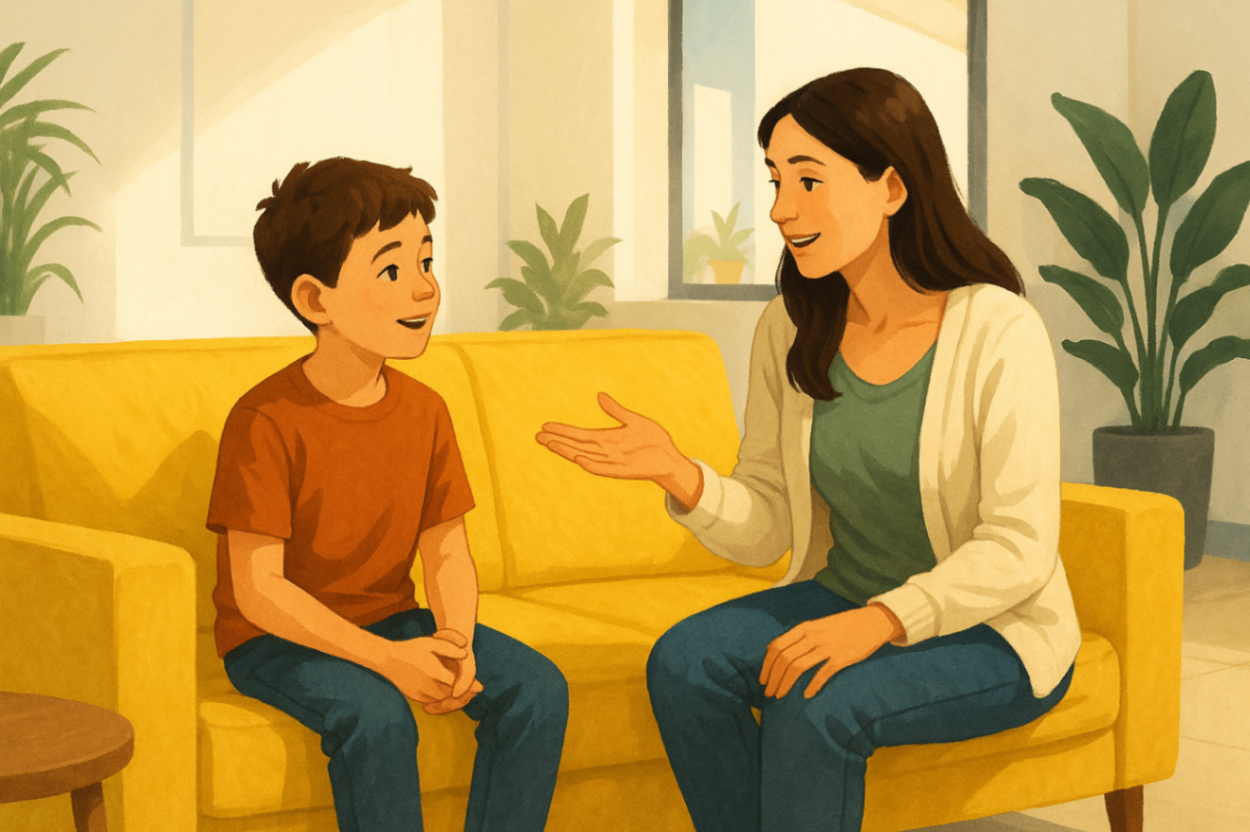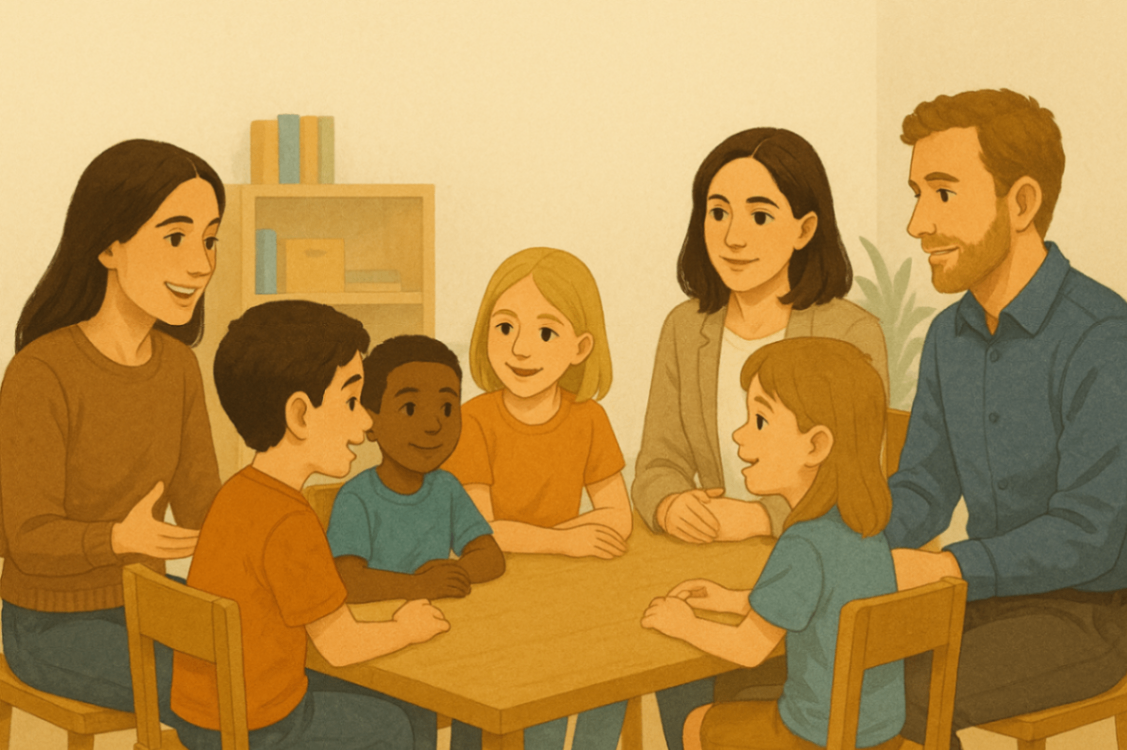
positive behaviour support | ndis guide liverpool
23 June, 2025

Key Highlights
-
Positive Behaviour Support equips individuals and families with strategies to manage challenging behaviour effectively, addressing mental health needs.
-
Under the NDIS, behaviour support plans promote clear communication and skill development for improved quality of life.
-
The focus on positive reinforcement fosters learning of new skills, enhancing social interactions and emotional well-being.
-
Tools like functional assessments identify root causes behind behaviours, allowing tailored interventions.
-
Our Liverpool-based behaviour support practitioners use PBS plans to reduce challenging behaviours in children and teens.
-
All interventions align with your child’s NDIS behaviour goals, including social, emotional, and communication outcomes.
What Is Positive Behaviour Support (PBS) Under the NDIS?
 In Liverpool, positive behaviour support plans are written by registered NDIS practitioners to ensure funding eligibility under “Improved Relationships” supports. Positive behaviour support (PBS) is a way to help people show more positive behaviour and handle challenges better. The goal is to make their quality of life better. PBS means looking at why someone does something, then using steps and ideas that are made for what that person needs. This plan works by giving support and making their environment better for them. With positive behaviour support, people can get more help to be the best they can and live well. If you’re managing challenging behaviours in children, PBS offers a proven pathway to sustainable change.
In Liverpool, positive behaviour support plans are written by registered NDIS practitioners to ensure funding eligibility under “Improved Relationships” supports. Positive behaviour support (PBS) is a way to help people show more positive behaviour and handle challenges better. The goal is to make their quality of life better. PBS means looking at why someone does something, then using steps and ideas that are made for what that person needs. This plan works by giving support and making their environment better for them. With positive behaviour support, people can get more help to be the best they can and live well. If you’re managing challenging behaviours in children, PBS offers a proven pathway to sustainable change.
Identifying challenges early can make a big difference — learn the early indicators that point to behavioural therapy being the right next step.
How Positive Behaviour Support Works for Liverpool Families
Our NDIS behaviour support practitioners in Liverpool start with a functional behaviour assessment, then collaborate with your family to develop a PBS plan tailored to your child’s needs. These strategies are reviewed regularly and updated based on real-world progress across home, school, and therapy settings.
PBS is part of NDIS behaviour support plans. It starts with looking at the needs of the person to help them. There are also steps to set up support that fits just for them. The aim is to encourage positive behaviour every day. With this plan in place, there is a focus on knowing why some behaviour happens. Then, the team puts in place steps to help before problems start. These actions are meant to make day-to-day life better and to help each person grow. By doing this, behaviour support plans use pbs to raise the quality of life for the person. Through telehealth, we extend Liverpool NDIS services to families in nearby suburbs.
Who Benefits From PBS Under the NDIS?
PBS is especially effective for NDIS participants living with autism, ADHD, or intellectual disabilities. In Liverpool, we support children from early years through adolescence, helping them build coping skills that align with their NDIS plan goals.
The scope of PBS is very helpful for people with developmental disabilities who get NDIS support. People who show challenging behaviours can learn new ways to react. With PBS, they also get ideas that help them improve their social skills and how they talk to others. This is good for a child who is having a hard time at school or an adult who wants to have more order in daily routines. PBS gives them tools to make life better in a real way.
Families get a lot out of this too. They have easier times in their day and better understand the behaviour of loved ones. This experience helps family members take part by using the same universal supports and support steps at home. This helps the person become more sure of themselves and gain independence. Teachers and caregivers can also use PBS. Your behaviour support practitioner Liverpool will liaise with teachers to keep strategies consistent. It lets them work together to help with behaviour in open and welcoming places. This makes PBS very special and helpful for many people.
Access to specialist behaviour support NDIS funding means evidence-based interventions at no extra cost.
What Makes PBS Different from Other Behaviour Strategies?
Positive Behavioural Support (PBS) is not the same as old-style behaviour strategies. PBS looks at what each person needs and helps create long-term positive change through positive behavioural support. This means it works to get ahead of problems before they start, instead of waiting and reacting after the behaviour happens. Positive behaviour support also tries to improve the quality of life for the person. PBS is about finding better ways for people to live, not just stopping the behaviour. Positive behaviour, in this way, is supported by looking at the whole person, not just their actions.
Unlike general behaviour therapy, PBS under the NDIS requires detailed documentation by a registered NDIS behaviour practitioner in Liverpool and is reviewed in collaboration with families and support coordinators.
To understand how PBS differs from other approaches, here’s a quick guide on the difference between PBS and ABA therapy.
Book Your Consultation Now: Start a Personalised PBS Plan
 Our Positive Behaviour Support programs in Liverpool are NDIS-compliant and delivered by certified behaviour practitioners. At daar, we begin by speaking with you and reviewing referral information to understand the behavioural concerns you're facing. From there, we ensure fidelity of implementation—this means crafting comprehensive PBS plans tailored to each person’s unique needs, environment, and goals.
Our Positive Behaviour Support programs in Liverpool are NDIS-compliant and delivered by certified behaviour practitioners. At daar, we begin by speaking with you and reviewing referral information to understand the behavioural concerns you're facing. From there, we ensure fidelity of implementation—this means crafting comprehensive PBS plans tailored to each person’s unique needs, environment, and goals.
We proudly serve families in Liverpool, Casula, Lurnea, Prestons, Moorebank, Chipping Norton, Miller, Ashcroft, Cartwright, Green Valley, Busby, Bonnyrigg, Hoxton Park, Wattle Grove, Warwick Farm, Cabramatta, Mount Pritchard, Glenfield, Edmondson Park, Ingleburn, and Middleton Grange.
Our programs often include small group sessions designed to support social skill development and peer collaboration. These safe, structured environments help participants build confidence while applying PBS techniques in real-time.
Every strategy we use is implemented step-by-step and regularly reviewed to ensure outcomes align with the NDIS goals of each participant. Along the way, we equip parents and carers with the tools and knowledge to carry PBS strategies into the home—so families feel confident, capable, and supported every step of the way.
Book your Positive Behaviour Support consultation in Liverpool today and receive a personalised, fully NDIS-aligned plan for your child or loved one.
Conclusion
Families across Liverpool are turning to PBS as a proven, compassionate method to reduce behaviours of concern and improve quality of life. If you’re unsure how to include PBS in your NDIS plan, our team can walk you through the eligibility and funding steps. PBS looks at every person as an individual by implementing principles from applied behaviour analysis (ABA). It uses plans made just for them. This helps create positive behaviour and better results. PBS is not the same as regular behaviour strategies. It takes a whole view of the person and gives care in a way that fits well.
Frequently Asked Questions
Is Positive Behaviour Support funded by the NDIS?
Yes — Positive Behaviour Support is fully funded by the NDIS under the Capacity-Building “Improved Relationships” budget. The 2025-26 price guide lists two support items that cover it: 11 _022 _0110 _7 _3 (“Specialist Behavioural Intervention Support”) for the assessment and behaviour support plan, and 11 _023 _0110 _7 _3 (“Behaviour Management Plan incl. Training”) for practitioner coaching and plan implementation. PBS services in Liverpool are funded under Capacity Building – Improved Relationships, delivered by a registered NDIS behaviour support practitioner.
Can PBS be delivered via telehealth?
Yes. Positive behaviour support (PBS) can be given through telehealth. You and your family can work on behaviour support plans and build better communication skills without leaving your house. The use of applied behaviour analysis helps you have good positive behaviour strategies at home. These techniques make it easy to access positive behaviour support. Our Liverpool clinic also offers secure PBS telehealth options for families in Moorebank, Ashcroft, Chipping Norton, and nearby suburbs.
Can family members be involved in the PBS process?
Yes, family members have a big part in positive behaviour support, or PBS. They work with experts through meetings and classes. This teamwork helps reach good results in the NDIS system. When family members are part of the process, the ideas and plans work better and last longer. Our PBS therapists provide parent coaching as part of your NDIS support plan, ensuring families can reinforce strategies between sessions.
.svg)

















